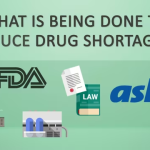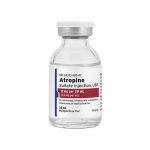Cancer Drug Shortages Threaten Progress Of Vital Clinical Trials

Many agencies involved in cancer research and clinical trials are facing significant challenges due to the shortage of cancer drugs, as reported by CNN on July 20. The National Cancer Institute has indicated that at least 174 of its trials are at risk of being affected by these shortages. Consequently, several other research institutions have been forced to either postpone or forego starting trials altogether due to the lack of essential drugs.
Mark Fleury, PhD, a policy principal with the American Cancer Society Cancer Action Network, expressed concerns about the potential long-term impact of these delays. He mentioned that some institutions have even had to shut down multiple clinical trials involving drugs in short supply. The implications of such setbacks may not become fully apparent for several years to come, potentially hampering the development of the next generation of cancer treatments.
The situation is exacerbated by the fact that at least 25 cancer drugs are currently facing shortages, as highlighted by the American Society of Health-System Pharmacists. Particularly worrisome are the severe shortages of carboplatin and cisplatin, two crucial drugs used in cancer treatment. These shortages have had a widespread impact on cancer patients across the nation.
A survey revealed that an alarming 93 percent of cancer centers are grappling with a shortage of carboplatin, while 70 percent are facing difficulties in obtaining cisplatin. Recognizing the gravity of the situation, the FDA has taken steps to mitigate the ongoing cancer drug shortage by permitting increased importation of cisplatin from a China-based pharmaceutical company into the U.S. Nonetheless, many institutions still struggle to access an adequate supply of these essential drugs.
The shortage of cancer drugs not only impedes ongoing research and clinical trials but also poses a significant threat to cancer patients who rely on these medications for their treatment. As this crisis continues, the medical community must work diligently to find viable solutions to ensure adequate drug supplies and continued progress in cancer research and treatment. Only through collaborative efforts and innovative approaches can we hope to address the current challenges and provide better outcomes for cancer patients in the future.





